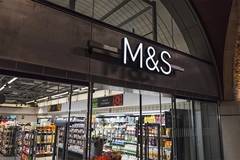
- Industry news
Industry news
- Category news
Category news
- Reports
- Key trends
- Multimedia
- Journal
- Events
- Suppliers
- Home
- Industry news
Industry news
- Category news
Category news
- Reports
- Key trends
- Multimedia
- Events
- Suppliers
DSM Food Specialties Demonstrates Acrylamide Mitigation Solution PreventAse to Delegation of CODEX Committee on Contaminents in Food

DSM was able to demonstrate how easily PreventASe can be applied in certain foods and the significant impact thereof. DSM’s PreventASe is today being used commercially in various food products throughout Europe and consumers are benefiting as a direct result.

03/04/09 Whilst continuing their discussions over the proposed Code of Practice for the reduction of acrylamide in food, more than 30 national delegates attending the CODEX Committee on Contaminants in Foods in Rotterdam visited DSM Food Specialities’ Innovation Centre in Delft on Thursday 26th of March.
During the half day visit, delegates were given demonstrations on how DSM’s innovative acrylamide mitigation solution, PreventASe, can be formulated into both dough based cookies and potato products. Additionally delegates were provided with an analysis of asparaginase activity, its impact on the prevention of acrylamide formation in food and given the opportunity to ‘taste’ the end product – acrylamide reduced cookies
DSM acknowledges the important work of the CODEX Committee in establishing a global code of practice for acrylamide reduction. Alexander Wessels, DSM Food Specialties, Managing Director: “The increased recognition of asparaginase as an effective method of preventing acrylamide formation is encouraging and demonstrates the growing acceptance of asparaginase as an effective method of acrylamide reduction.”
Speaking after the event, Ruth Donners, PreventASe Business Development Manager added, “With its extensive regulatory approval, broad range of applications and ease of use, PreventASe coupled with DSM’s application expertise and support, is an ideal choice for companies implementing an acrylamide reduction strategy.” Rob Beudeker, Business Development Director, added: “At this event DSM was able to demonstrate how easily PreventASe can be applied in certain foods and the significant impact thereof. DSM’s PreventASe is today being used commercially in various food products throughout Europe and consumers are benefiting as a direct result.”
Following the visit of the CODEX delegates Mrs. Donners noted: “The demonstration and visit was a great success and it is clear that many of the delegates appreciated having first hand experience of how this technology works in practice. The expected adoption of the CODEX Code of Practice as well as the recently published food industry association (CIAA) acrylamide toolbox provide industry with real guidance on this challenging issue, and DSM is ready to partner with industry in achieving their goals.”
The CODEX Committee on Contaminants in Foods meeting in Rotterdam is scheduled to address a range of issues including the further development of the ‘Draft Code of Practice for the Reduction of Acrylamide in Food’. This Code of Practice intends to provide national and local authorities, manufacturers and other relevant bodies with guidance to prevent and reduce formation of acrylamide in potato products and cereal products.










